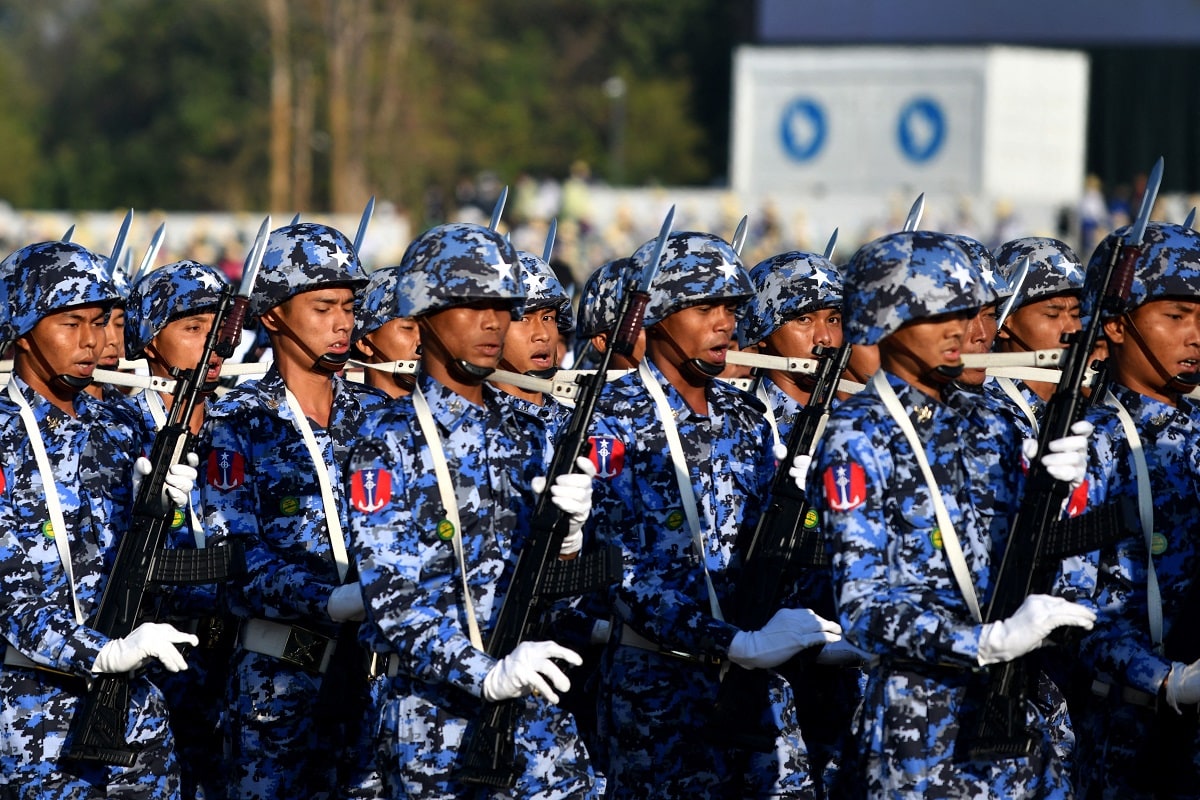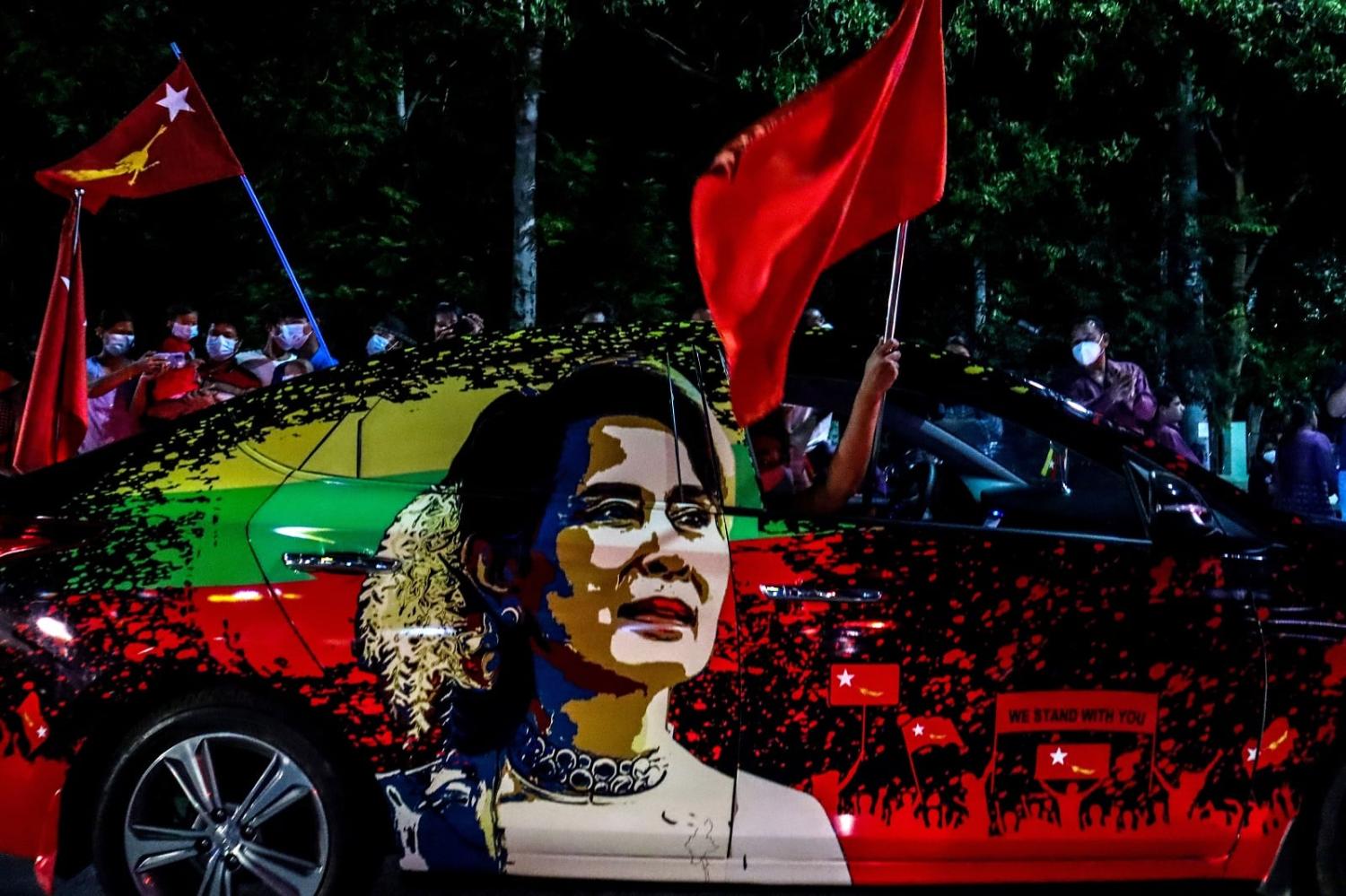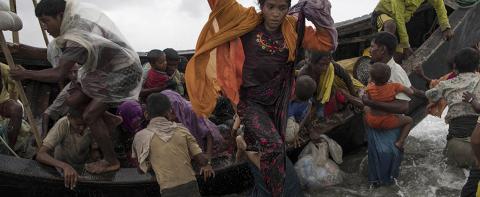It has been suggested recently that Myanmar’s imprisoned State Counsellor, Aung San Suu Kyi, has been left behind by history and is no longer relevant to the outcome of the civil war that has been raging around the country since the 2021 military coup. Given her pivotal role in Myanmar’s politics over the past 35 years or so, this idea warrants closer inspection.
The claim seems to have been prompted in part by the visit to Myanmar in April of the outgoing Thai Foreign Minister, Don Pramudwinai, who was granted an interview with Aung San Suu Kyi. He later said that she was in favour of a “dialogue without preconditions” aimed at achieving a negotiated solution to Myanmar’s crisis. This option has long been rejected by both the junta and the shadow National Unity Government (NUG).
Don’s visit has been criticised by the NUG and other opposition groups as a stunt designed to strengthen Bangkok’s ties to Myanmar’s military regime and to justify the outgoing Thai government’s much criticised attempt at two-track diplomacy, outside formal meetings of the Association of Southeast Asian Nations. It has also been seen as a way of putting pressure on Indonesia, as ASEAN’s current chair, to modify its tough stance against the junta, which has brushed aside ASEAN’s Five-Point Consensus.
Don’s unprecedented access to Aung San Suu Kyi, who is serving a total of 33 years in jail for a range of offences, has been described by other observers as a clever “political tactic” on the part of Myanmar’s generals. The rare concession is seen as part of a broad strategy to divide ASEAN, splinter the opposition movement and sow dissension among the international community, thus weakening the forces arrayed against the junta.
The Thai Foreign Minister’s unannounced visit to Myanmar, and reported discussion with Aung San Suu Kyi, has also revealed different views among ASEAN members over Aung San Suu Kyi’s role in the resolution of the Myanmar crisis. The Five-Point Consensus makes no mention of the former leader (or any other political prisoners). Yet some ASEAN members, such as Singapore, consider her participation in talks critical to any durable solution.
In these circumstances, it is worth considering Aung San Suu Kyi’s current position. Six factors immediately spring to mind.
First, Myanmar’s military leadership has clearly decided that Aung San Suu Kyi no longer has a significant role to play in restoring peace to the country, unless it is to weaken the resolve of the opposition movement and persuade it, or at least key elements of it, to lay down their arms and accept a form of military rule. Needless to say, Aung San Suu Kyi is unlikely to acquiesce in such a role.

Second, Aung San Suu Kyi remains a popular figure within Myanmar, as evidenced by her landslide re-election in 2020, but the failure of her government to solve many of Myanmar’s problems during her five-year rule has eroded her appeal. Also, since the coup, her place in the vanguard of the democratic movement has been taken by the NUG, the People’s Defence Forces (PDF) and local resistance groups.
In that regard, it is noteworthy that the NUG and the myriad armed groups that have sprung up since the coup have consciously rejected Aung San Suu Kyi’s signature policy of peaceful political change, and chosen to take up arms against the junta. In the case of many resistance cells, this includes controversial tactics such as the assassination of suspected pro-junta figures and indiscriminate bombings in urban areas.
Fourth, Aung San Suu Kyi has been named as State Counsellor in the NUG. She is listed on its website as a “Head of Government”, along with the President, Acting President and Prime Minister. Yet she currently has no role other than as a figurehead, plays no part in the NUG’s deliberations, and probably disagrees with some of its policies. Her uncompromising attitude towards the Muslim Rohingyas, for example, is in stark contrast to the NUG’s more tolerant approach.
Fifth, the opposition movement is a diverse collection of ethnic armed organisations, political groups, armed bands and other dissidents. They are currently agreed on a united front against the junta, but this stance glosses over many differences regarding policies, priorities and personalities. In this highly volatile mix, Aung San Suu Kyi’s would be only one voice, albeit an important one. Any dialogue with the junta would face serious challenges, whether or not it was supported by the former leader.
Indeed, over the past few years, a host of small armed groups have arisen. Many pay lip service to the NUG, or the PDF, but most act independently. They collect their own intelligence, choose their own targets and decide their own tactics. At the end of the day, these groups are unlikely meekly to surrender their arms and do as they are told by members of the so-called political elite, negotiated settlement or not.
Finally, Aung San Suu Kyi used to be the darling of the international community but her moral authority collapsed in 2019 when she defended Myanmar’s armed forces against charges of genocide at the International Court of Justice. While still important to Western policymakers, she no longer commands the influence she once did. A new generation of leaders has emerged in Myanmar that demand greater attention.
All that said, and as Don’s visit demonstrated, Aung San Suu Kyi is still viewed as a potent symbol by the junta, the opposition movement and ASEAN. If they can, all three are prepared to use her to pursue their own interests.
Locked up in Naypyidaw and kept incommunicado, except for carefully vetted individuals, it is difficult to know what she herself is thinking and saying (Don’s pronouncements notwithstanding). However, one thing is clear. Politically weakened, morally compromised and deprived of a public stage she may be, but Aung San Suu Kyi cannot yet be written off as a factor in the power games being played in and around Myanmar.

